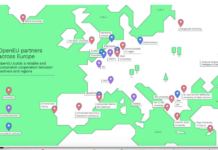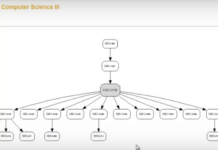Parry, M. (2010) Online Scheme Highlights Fears About Distance-Education Fraud The Chronicle of Higher Education, January 14
Every once in a while comes along a story about distance education that I love to read. This is one of them (the comments are also fun to read).
The scam that the woman pulled was so elaborate and netted so much cash that she should have been given a degree from the Bernie Madoff School of Business (Chancellor: Conrad Black).
I am always asked by instructors who are afraid of online learning about cheating by distance students. Any respectable instructor who knows what they are doing can tell very quickly if a student is genuine or not. There are many safeguards you can build in, such as delaying financial aid payments until the student has done actual work, ensuring that students submit work on a regular (i.e. weekly) basis, ensuring that students participate in online discussions, give them individual and group project work (with peer assessment – boy, that sorts out quickly the lazy ones), and, as one of the commentators wrote, ensure supervised local examinations by hiring staff from locally respected colleges.
The real deterrent to fraud is to make it so much hard academic work to get the financial aid or the grades that it isn’t worth the effort of trying to defraud the system. This comes down to two aspects of design: the design of financial aid systems; and the design of effective online teaching. Unfortunately though there are the bad apples in the system both in terms of cheating and in terms of institutions or instructors not willing to build in well established quality assurance procedures for online teaching.









 Dr. Tony Bates is the author of eleven books in the field of online learning and distance education. He has provided consulting services specializing in training in the planning and management of online learning and distance education, working with over 40 organizations in 25 countries. Tony is a Research Associate with Contact North | Contact Nord, Ontario’s Distance Education & Training Network.
Dr. Tony Bates is the author of eleven books in the field of online learning and distance education. He has provided consulting services specializing in training in the planning and management of online learning and distance education, working with over 40 organizations in 25 countries. Tony is a Research Associate with Contact North | Contact Nord, Ontario’s Distance Education & Training Network.

